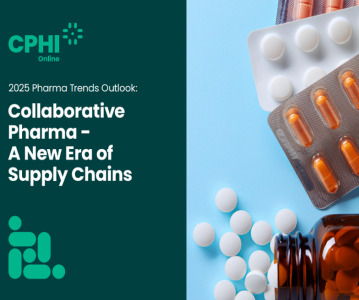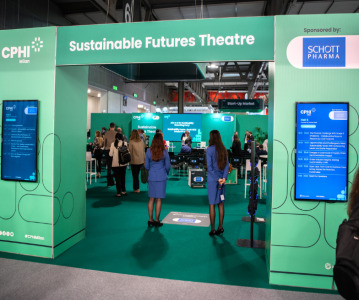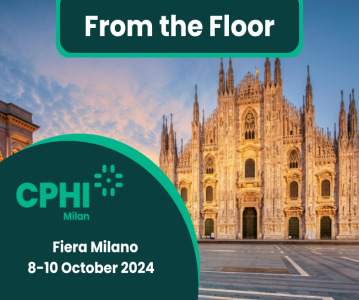Sourcing responsibly, can it be done?
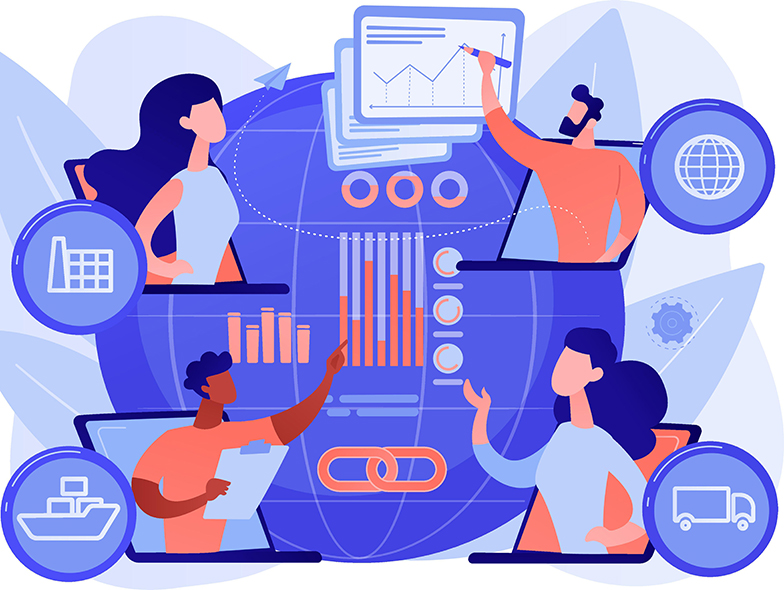
A quarterly series of blog posts about responsible supply chain management from the PSCI Chair, Vicki Stone-Bjarup.
Responsible procurement seeks to embed environmental, social, and ethical risks into standard procurement procedures and processes for engaging with vendors. With the growing shift towards ESG and incoming supply chain legislation across the world, the practice of responsible sourcing is gaining ground and a key focus for the pharmaceutical industry.
Transparency calling
Our supply chains are getting more complex, and recent disruptions show how fragile they can also be. On top of that, the lack of transparency increasingly causes human rights violations and contributes to climate change. This has an effect on the legislative landscape that aims at tackling these issues. The EU Deforestation Directive, EU Human Rights and Environment Due Diligence Directive, German Supply Chain Act, and US Uyghur Forced Labor Prevention Act, just to name a few, will in the coming years influence where we buy and how we buy, by demanding more transparency from the supply chains of global brands. With the new trends emerging, there is a need for new organisational functions to support the work ahead. This is a particularly complicated issue for the pharmaceutical and healthcare sector, which has large, complex, and truly global supply chains that span geographies, countries, and legislative frameworks.
Responsible procurement – an emerging trend and profession
Responsible Procurement is a term rapidly spreading into the corporate floors, tackling the sustainability agenda from operational side rather than the high level strategic. It offers a more hands-on approach, anchored in the procurement or sourcing teams. Not always comfortable to procurement professionals, as this is yet another hat that they are required to wear, Responsible Procurement asks not only for where or what to source (e.g., certified products) but most of all, how to source (e.g. by having awareness of local communities, transparency down the chain, etc.). Overall, we can define responsible procurement as the practice of evaluating the ethical , environmental, and social impacts of a given product or supplier alongside the more standard considerations of price and quality within the procurement process. The goal of responsible procurement is to improve the ethical, environmental, and social performance of suppliers and ultimately mitigate any negative impacts found within the supply chain.
Sourcing of many raw materials presents various social and environmental risks that must be tackled as early as possible. Therefore, the context in which procurement professionals operate changes significantly and requires much more collaborative efforts to reach the goals. Nevertheless, thinking these risks into the buying process essentially leads to better procurement decisions overall and benefits for companies in terms of the ESG performance and suppliers and the communities in which they operate. Assistance often comes through Responsible Procurement professionals that can unite the emerging sustainability trends and demands with the supply chain complexity and knowledge.
But Responsible Procurement is not only about buying certified raw materials or having adequate due diligence in place. More often we see examples of responsible sourcing taking the form of stakeholder engagement or collaborative activities, where the aim is to bring common standards to life and take the administrative burden off the suppliers to allow them to focus their efforts on improving sustainability standards.
Better together
In the Pharmaceutical Supply Chain Initiative (PSCI), we work towards making common standards for all pharmaceutical suppliers and engaging stakeholders in the important discussion on how to move the needle. We do this through the PSCI Principles for Responsible Supply Chain Management and by creating tools, organizing webinars, and facilitating knowledge sharing for both procurement professionals and suppliers.
One particular area of focus for us in on raw materials sourcing, as this is a typical hotspot for pharmaceutical companies. We have initially looked at sourcing risk through the human rights lens, and engage key stakeholders across the PSCI membership to include views and insights. To help our members and create change across the industry and down the supply chain, we created a High-Risk Materials Sourcing Process & Evidence Evaluation Tool that enables procurement professionals to understand the human rights risks associated with key raw materials and evaluate how suppliers are addressing these risks.
There is a common appreciation that often, pharma companies do not have significant leverage when sourcing raw materials as the volumes cannot compare to the ones from e.g., food industry. Therefore, collective, and pre-competitive action is essential to address the lack of supply chain transparency as well as to limit the duplication of supplier engagement efforts. The projects are focused on a collective approach, often closing the knowledge and transparency gap, allowing single member companies to gain the necessary influence by approaching suppliers with a common voice of the industry. For the future, we hope to be able to succeed in creating even more positive impact for all stakeholders in our supply chains and unlocking the full potential of the initiative.

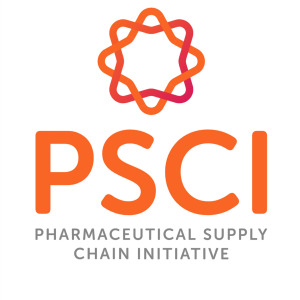
Related News
-
News How GLP-1 agonists are reshaping drug delivery innovations
GLP-1 agonist drug products like Ozempic, Wegovy, and Mounjaro have taken the healthcare industry by storm in recent years. Originally conceived as treatment for Type 2 diabetes, the weight-loss effects of these products have taken on unprecedented int... -
News NextPharma Achieves Carbon Neutrality for Scope 1 and 2 Emissions
NextPharma has confirmed that it will achieve carbon neutrality for its Scope 1 and Scope 2 emissions starting January 1, 2025, marking a significant milestone in its sustainability journey. -
News 2025 Pharma Trends Outlook: Collaborative Pharma – A New Era of Supply Chains
A new year, a new Pharma Trends Outlook report! The 2025 Pharma Trends Outlook report examines key changes expected in the pharmaceutical industry for the coming year, particularly in regards to the supply chain. -
News Closing 2024 with Editors' picks of top articles from the past year
Coming to the end of 2024 and it’s certainly been a busy year, for CPHI and for the rest of the pharmaceutical and healthcare industry. Topics of conversation throughout the last 12 months have been varied, touching on the technical, to the polit... -
News SCHOTT Pharma’s sustainable journey with CPHI
Sustainability is of paramount importance in the pharmaceutical industry. See how a recent partnership between CPHI and SCHOTT Pharma has helped to highlight and accelerate their sustainability journey to reach global goals. -
News Day in the Life of a Green Chief Financial Officer
Our latest look into the daily lives of the people behind the pharma community brings us to meet Juan Jose Piedra Galan, Global Financial Planning & Analysis Manager for Galderma, otherwise known as 'The Green CFO'. -
News CPHI Milan 2024 - From the Floor
Milan and CPHI welcome you to 2024 CPHI Milan! As we celebrate the 35th edition of our flagship CPHI show, editors Vivian Xie and Lucy Chard bring you the latest from the show floor, conference sessions, and innovative solutions from all exhibitors, at... -
News CPHI Podcast Series: analysing supplier audits with the PSCI
This episode of the CPHI Podcast Series, hosted by Digital Editor Lucy Chard, goes through the results from the recent audits from the PSCI conducted on suppliers across the pharmaceutical industry, looking into ESG outcomes.
Recently Visited
Position your company at the heart of the global Pharma industry with a CPHI Online membership
-
Your products and solutions visible to thousands of visitors within the largest Pharma marketplace
-
Generate high-quality, engaged leads for your business, all year round
-
Promote your business as the industry’s thought-leader by hosting your reports, brochures and videos within your profile
-
Your company’s profile boosted at all participating CPHI events
-
An easy-to-use platform with a detailed dashboard showing your leads and performance


